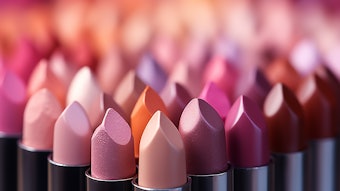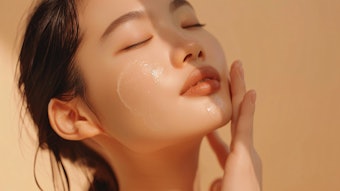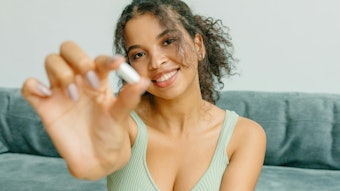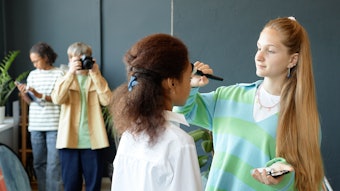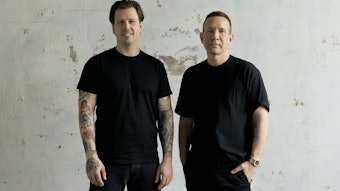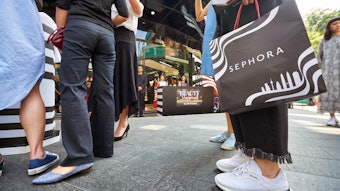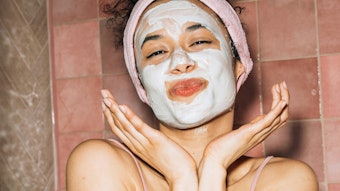French beauty giant L’Oréal is looking to restart the manufacturing of products in Argentina, according to an announcement made by Germán Herrera, an executive of L’Oréal’s Argentine subsidiary. Herrera also said the company aims to develop its own industrial park in Argentina. Previously, L’Oréal closed down its factory located in Pilar, a suburb of Buenos Aires, in 2002.
In addition, L’Oréal revealed 2012 financials, which showed a 2% decrease in volume. The trend is also negative for 2013, with a fall in volume of 4% so far. Argentina contributes the most to L’Oréal’s growth in Latin America—25% of the total. The French giant’s brands reach 8.7 million Argentines, so nearly one in two Argentine women over the age of 15 use L’Oréal products.
Unilever Opens Aerosol Plant
In April 2013, Unilever opened an aerosol deodorant plant in Argentina; it is also one of the world’s largest and most modern such plants. Argentina’s president, Cristina Fernández de Kirchner, was present at the facility, which required an investment of $22 million and has a production capacity of 540 million aerosol cans per year.
According to the Federación Latinoamericana del Aerosol (FLADA, or the Latin American Federation of Aerosol), 53% of aerosol production is intended for personal care products, mainly deodorants. Unilever has a positive balance in terms of foreign trade, as it exports 24% of its total production per year—including deodorants. Further, the Unilever 2013–2015 investment plan for Argentina will create 120 job positions, new product lines and improvements in the manufacturing processes.
Argentina has one of the highest per capita aerosol consumption rates. The average consumption is 10 aerosol products per person per year. This beats consumption rates in Chile, Uruguay and Mexico, which have a consumption of 4.6, 3.3 and 2.7 units, respectively.
Peru Plans to Double Beauty Sales By 2017
In 2012, Peru’s beauty and personal care market grew 23% over 2011 sales, reaching $2.25 billion, and the country foresees current sales doubling by 2017 to over $5.5 billion—according to projections from a market intelligence survey carried out by Copecoh, the Comité Peruano de Cosmética e Higiene (the Peruvian Cosmetics and Personal Care Committee) of the Lima Chamber of Commerce.
The committee noted that this calculation was based on indicators such as private consumption, commercial growth, imports and private investment, among other factors. Exportations for the beauty sector in Peru also continue to improve with respect to imports. Shipments of these products reached US$129 million last year—43% more than in 2011.
Companies In Chile, Colombia, Mexico Join Forces
Beauty executives in Colombia, Mexico, Peru and Chile have decided to work together to identify problems and propose common solutions to their governments that allow them to improve efficiency, productivity and competitiveness. The organization is being called the Pacific Alliance.
One of the results of this union will be the total elimination of tariffs between Peru and Mexico, meaning the beauty products that are manufactured in any of the countries that are members of the Pacific Alliance will be free of tariffs when they circulate within any of these four markets. They will also remove technical barriers to trade by replacing certificates of free sale with a scheme of market surveillance.
Expansion for VZ
VZ, the Argentine beauty retailer, is becoming a larger player in the region. In May 2013, it opened two new points of sale in Argentina, adding up to 72 outlets. It also licenses franchises in Chile, Guatemala Peru and Uruguay. VZ plans to expand further nationally and internationally to reach all Southern Cone countries (Argentina, Chile, Paraguay and Uruguay). VZ’s also plans to begin local production in each country where the company is present.
Peruvian Beauty Brand Comes to Paraguay
Yanbal Internacional, a Peruvian company that specializes in the direct sale of cosmetics and operates in nine countries worldwide with more than 400,000 employees, is launching operations in Paraguay by the end of the 2013, according to the Paraguay newspaper Última Hora. Approximately 200 female micro-entrepreneurs from Yanbal Bolivia were in Paraguay to train prospective new Yanbal sellers. The company, which markets the beauty brand Unique, earns 21% of total sales in the Peruvian cosmetic market, according to data supplied by Kantar Worldpanel. Yanbal already operates in Italy, Spain, Mexico, Guatemala, Venezuela, Colombia, Peru, Ecuador and Bolivia.
Cristina Kroll is a business journalist specializing in the beauty sector and living in Buenos Aires, Argentina. She has written for the main Argentine magazines related to the beauty business, and was a correspondent for French magazine Beauty Business News.


